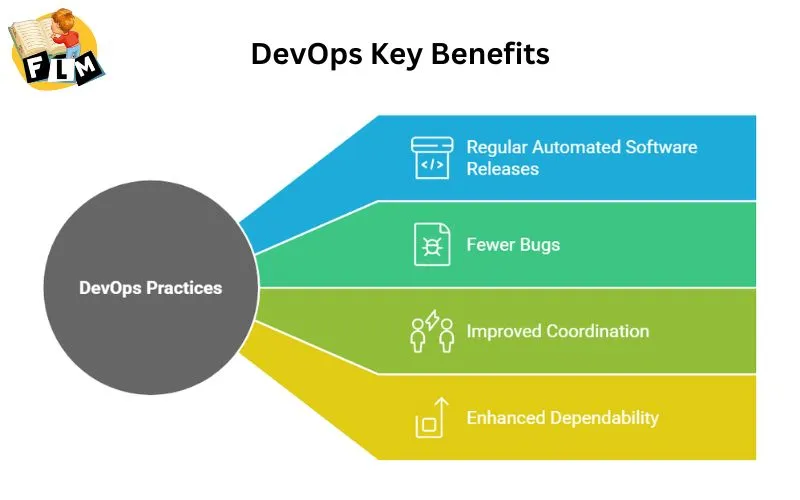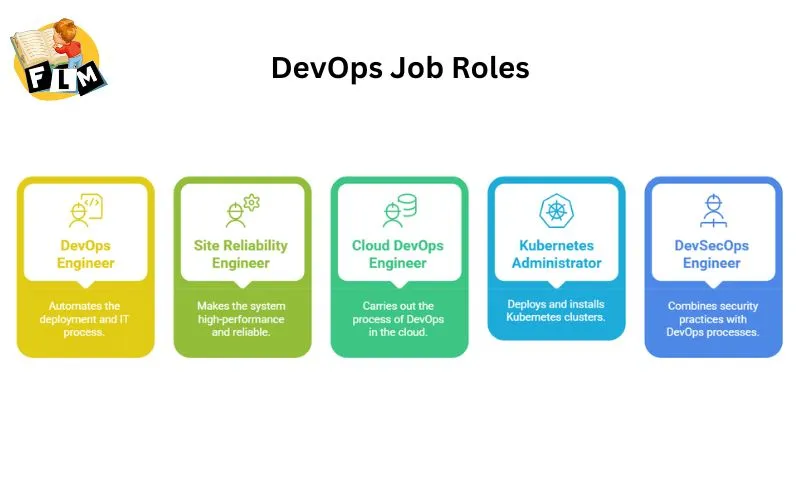DevOps Career is arguably the most buzzed IT question right now What is DevOps then is it technology the name of an employee or a way of life?
Regardless of whether you are used to or start with in embracing DevOps or need to build your career on this guide will guarantee
- What is DevOps?
- Why is DevOps needed?
- How does DevOps work?
- Principal tools & technologies
- DevOps career
- Learning DevOps from the beginning
What is DevOps?
DevOps is the abbreviation of Development + Operations and a compilation of professional and cultural practices between software development DevOps allows the teams of software development and IT operations to work more tightly together to automate and to release software more rapidly
Why did DevOps exist?
Developers and operation teams were isolated from each other prior to DevOps The developers would deploy the code and execute it on operations and thus the bugs delays and deployments that had not succeeded DevOps came in and filled the gap by conducting continuous integration monitoring and automation
DevOps Key Benefits

- More regular automated release of software
- Less bug due to continuous testing
- Improved coordination between operation and development
- Improved dependability for secure release of the software
How DevOps Operates?
DevOps is achieved through a constant process referred to as the DevOps pipeline
DevOps Life Cycle Phases
- Plan – Defining project processes and specifications
- Develop – Writing code testing and releasing it
- Build – Compiling code to executable software
- Test – Running automated tests to determine defects
- Release – Bundling software for release
- Deploy – Installing software on prod environments
- Monitor – Continual monitoring and fixing faults
- Secure – Ensure security at every step (DevSecOps)
It facilitates frequent and rapid software releases
DevOps Key Tools & Technologies
DevOps is automated and tool-based to a large extent to make it effective
Top DevOps Tools by Categories
- Version Control: Git, GitHub, GitLab, Bitbucket
- CI/CD Pipelines: Jenkins GitHub Actions GitLab CI/CD, CircleCI
- Containerization: Docker, Podman LXC
- Orchestration: Kubernetes OpenShift, Helm
- Configuration Management: Ansible Puppet Chef Terraform
- Monitoring & Logging: Prometheus Grafana ELK Stack Datadog
- Cloud Platforms: AWS Azure Google Cloud
All of these are implemented by organizations to their scaled DevOps
DevOps Job Roles

DevOps Career are acquiring very high demand from organizations with their automation of IT and deployment Below are some of the most in-demand DevOps job roles
- DevOps Engineer – Automates the deployment and IT process
- Site Reliability Engineer (SRE) – Makes the system high-performance and reliable
- Cloud DevOps Engineer – Carries out the process of DevOps in the cloud
- Kubernetes Administrator – Deploys and installs Kubernetes clusters
- DevSecOps Engineer – DevSecOps is a combination of security and DevOps
Employing seasoned hiring managers in Kubernetes AWS and cloud security
How to Learn DevOps from Scratch?
Step 1: Learn the Basics
Learn the fundamentals of Linux scripting (Bash Python) networking and cloud fundamentals such as AWS Azure or Google Cloud
Step 2: Learn DevOps Tools
Get hands-on experience with Git version control Jenkins CI/CD Docker containerization and Kubernetes orchestration
Step 3: Hands-On Projects
Build a CI/CD pipeline deploy a Docker container to Kubernetes and automate infrastructure with Terraform
Step 4: DevOps Certifications
Certifications will confirm your skill set. Some of the most popular are
- AWS Certified DevOps Engineer
- Docker Certified Associate (DCA)
- Certified Kubernetes Administrator (CKA)
Step 5: Internships & Job
Develop GitHub projects open – source contributions and a DevOps portfolio to demonstrate your proficiency
Hands-on experience is highly desired by most hiring managers so acquire hand-on as soon as possible
How DevOps Is Different from Other IT Fields
DevOps differs from conventional software coding and cloud engineering
Most of the coders time is dedicated to coding and DevOps professionals automate the infrastructure deployment and administration Cloud professionals can focus on constructing and managing cloud infrastructure
DevOps is for DevOps geeks who are also fond of cloud and debugging
DevOps Future: What Next?
Some of the upcoming trends influencing the future of DevOps include the following
- AI in DevOps – AI would be utilized to automate the deployment and monitoring
- Cloud-Native DevOps – Increasingly more companies would be adopting AWS, Azure, and Google Cloud
- Security-First DevOps (DevSecOps) – Security every which way
- Serverless & Kubernetes Growth – Increasingly more companies would be adopting containers and microservices
AI cloud and security technology leadership with DevOps will make your career life future -proof
Conclusion
DevOps is not technology it’s a culture that closes the gap between operations and development Through automation collaboration and continuous improvement organizations can release software faster safer, and with higher efficiency
Become a DevSecOps Expert – Secure, Automate & Elevate Your Career
Boost your career with FLM’s DevSecOps Course, designed to help you master Development, Security, and Operations the backbone of modern IT. With 30% Years on Years growth and salaries ranging from ₹15 LPA to ₹30 LPA, Our 3+ month live training covers AWS, Git Jenkins Docker Kubernetes Terraform, security tools, and more with real – world projects and expert mentorship to accelerate your journey.
What You’ll Gain?
- Live Expert-Led Interactive Training
- 10+ Hands-On Real-World Projects
- Exclusive Study Materials & Interview Preparation
- 2 – Year Recording Access for Early Enrollees
Don’t Miss Out – Limited Seats
Visit: frontlinesedutech.com/
WhatsApp Hi to 8333077727 for Course Complete info Syllabus Projects & Other Details
